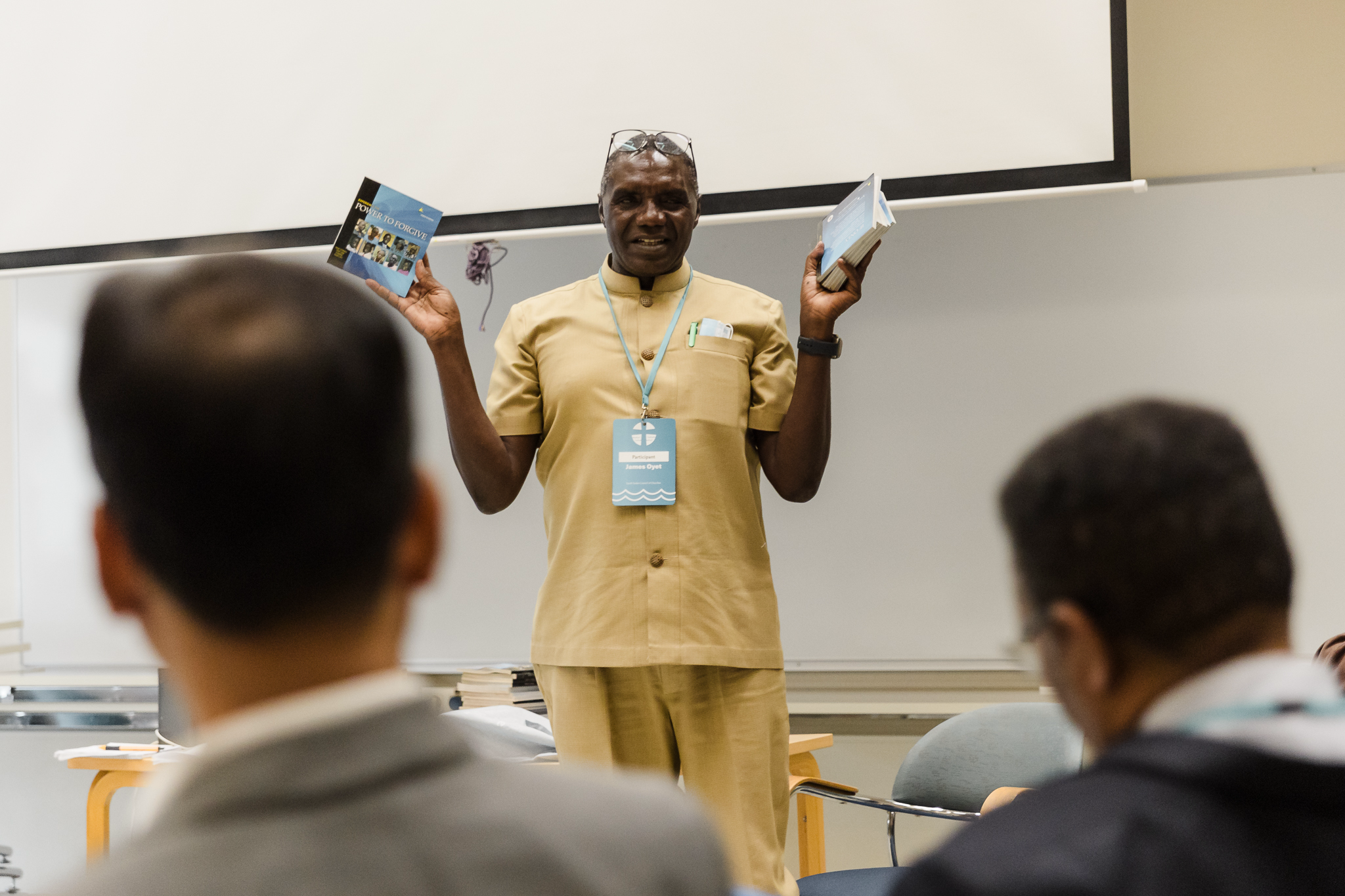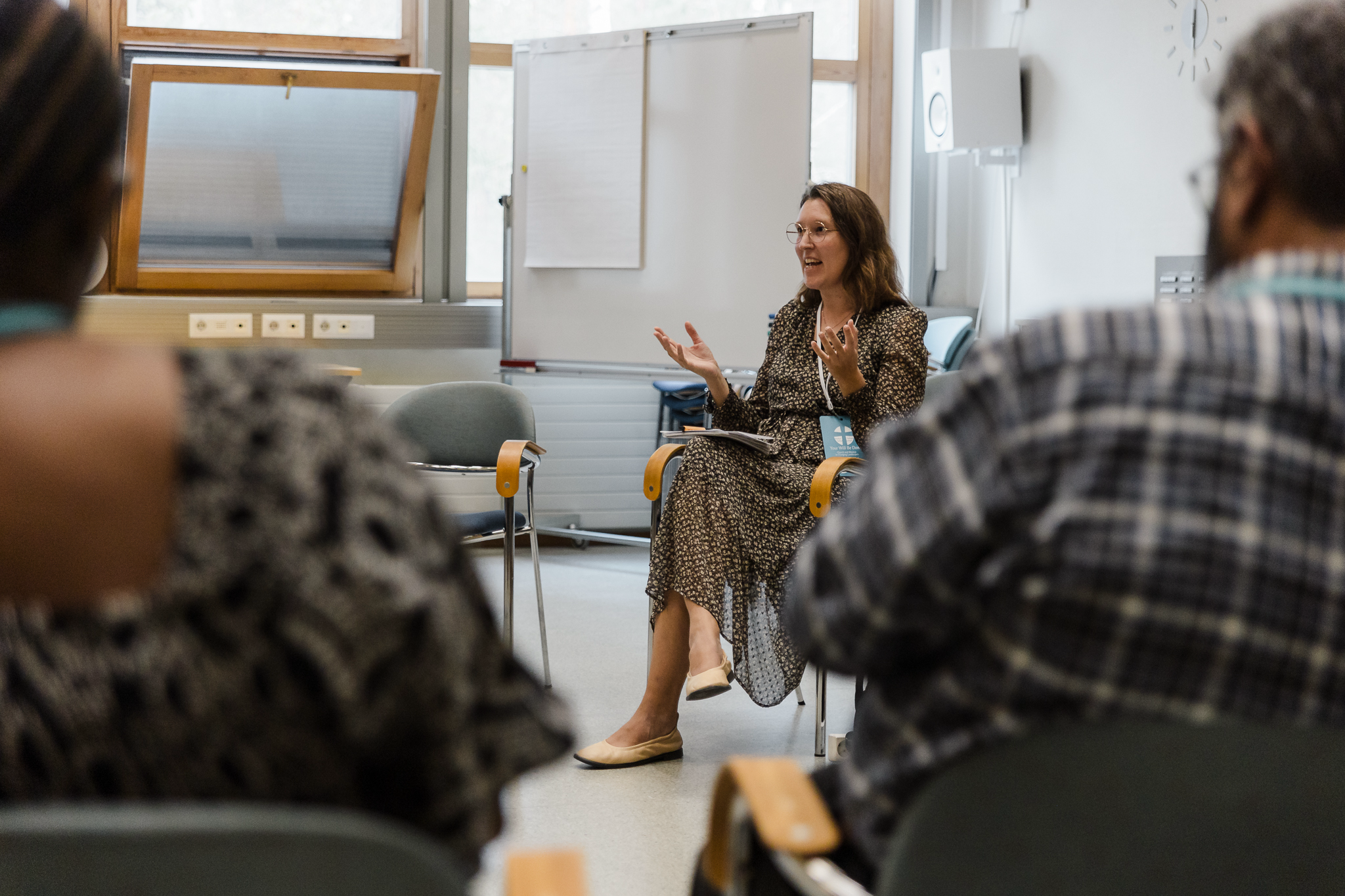Faith-based Leadership in Reconciliation: Highlights from the International Mission Partnership Consultations Workshop
Workshop | August 2024
On the 27th of August 2024, the Peacemakers Network in collaboration with Finn Church Aid and the South Sudan Council of Churches, facilitated a workshop on Peace and Reconciliation during the International Mission Partnership Consultations, hosted by the Evangelical Lutheran Church of Finland in Helsinki. This engaging session brought together participants from diverse regions to explore the role of faith-based actors in reconciliation efforts within their communities.

Fr. James Oyet Latansio, former General Secretary of the South Sudan Council of Churches leading the workshop. Photo: Jalmari Salovirta/the Evangelical Lutheran Church of Finland.
The workshop, co-led by Fr. James Oyet Latansio, former General Secretary of the South Sudan Council of Churches, and Kerttu Auvinen, Program Advisor at the Peacemakers Network, encouraged participants to reflect deeply on how faith leaders can foster reconciliation, even in the most challenging contexts.

Kerttu Auvinen, Program Advisor at the Peacemakers Network, facilitating the reconciliation discussion. Photo: Jalmari Salovirta/the Evangelical Lutheran Church of Finland.
Fr. James opened the session by sharing his own journey with reconciliation in South Sudan. He emphasizes that true reconciliation begins from within – “forgiving oneself is the first crucial step,” he remarked. His message underscored the importance of self-reconciliation as the foundation for building and rebuilding bridges with others as this resonated deeply with participants, setting a reflective tone for the discussions that followed.
A key highlight of the workshop was the small group discussions, where participants from regions such as South Sudan, Colombia, Malaysia, the Middle East, Tanzania, Ukraine, and Finland shared their own experiences with reconciliation. These conversations revealed a common theme: faith-based leaders, as respected figures within their communities, often play a vital role in reconciliation by witnessing the pain of their people firsthand.
Many participants emphasized that the church’s role is to be present for its community, especially in times of conflict, to listen and offer support. One participant expressed that even amidst violence and hardship, faith communities are called to love – even their enemies. In this way, they argued, missional peace – peace guided by faith – can continue to lead the way toward reconciliation, even when political peace seems out of reach.
The discussions also touched on the ongoing nature of reconciliation. Participants agreed that reconciliation is not a quick fix, but rather a process that takes time and requires the commitment of those involved. One participant shared a powerful insight: “Peace can be prepared in advance by building relationships before conflict arises.” This led to reflections on the connection between peace and truth, with many agreeing that while peace is impossible without truth, the truth can be difficult and painful to confront.
Fr. James reinforced this idea, reminding everyone that reconciliation begins with being true to oneself and he emphasized that only when individuals are honest with themselves and connected to their own inner peace, can they then effectively contribute to the broader reconciliation process within their communities.
The workshop concluded with a sense of shared commitment among participants to continue fostering reconciliation through their faith-based work. As the discussions revealed, while the path to reconciliation is complex and often difficult, faith-based leaders have a unique ability to guide their communities through it, promoting healing and unity, even in the most challenging of times.
Follow the Network on social
